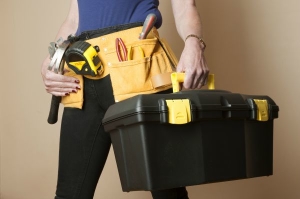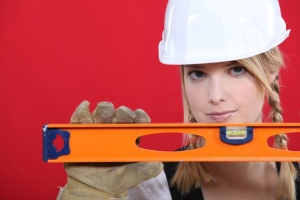Skip to content
Keeping Life Balanced – Questions You Need to Ask

Keeping Life Balanced – Questions You Need to Ask
Do you sometimes feel that your life is out of balance? Too much or too little of a good thing can be harmful. How do you know when things are out-of-whack? You might feel grumpy, lonely, too busy, or bored. You might realize that you need to make a change, but you aren’t sure how.
*************************************************************************************************************
Life Tool Box
Through this series of blog posts I am going to help you to continue to assemble your Life Tool Box. The tool box will be filled with lots of simple living skills. When you are having a rough time in your life, just look in the Life Tool Box and find the best skill to help you that day.
Each week I’ll continue to choose one common home improvement tool to represent one of these life skills. By the end of each blog post, you’ll understand exactly why you need that tool and how you can use it to improve your daily life.

****************************************************************************************************************
Let’s Add the Level
A level is a tool used to see if surfaces are completely even. This must be checked frequently to ensure that each part of a project will be sturdy and reliable to build upon. Is this shelf completely flat? Is this picture hanging straight? The little bubble in a level tool will tell you that.

In a similar way, think about using a level to keep balance in your life. Too much or too little of a thing can shift things to the point where life feels like it is wobbling . How can you create the right kind of stability that is healthy and keeps you steady.
Opportunity Costs
In economics theory, there is a concept known as “opportunity costs.” The essence of this theory is that when you make one choice you give up the opportunities that could have been provided by the other choice.
For example, the theory would say that by being busy all day and into the late evening, I lose the opportunity to be rested. Or if I spend a lot of time sleeping and relaxing, I lose the opportunity be active and involved. Many of our choices and decisions are made outside of full consciousness. When I choose to do one thing that seems right at the moment, I may not be fully aware of the choice I’m making and of the “opportunity cost.” The key to making good choices is to be more aware of how balance is achieved and lost every day.
Let’s take a closer look at the following two examples. Take note of the questions and how they can help increase your awareness of life balance.
Rest vs. Activity
Human beings need both times of rest and of activity. You probably consider yourself either a more active or more sedentary person. This will change over your lifespan, but think of how you see yourself right now. It can take some time to truly understand your needs and know how to respond to them.
-
How much sleep do you need to feel rested each night?
-
How long does it take for you to recover from a bad night of sleep?
-
How do you feel when you have times of more activity? Do you feel energized or drained?
-
How do you know when things are out of balance? What physical sensations, thoughts, and feelings do you tend to have?
-
When you have periods of time when you are too sedentary or too busy, how do you make adjustments to your schedule and to your mindset?
-
When you have problems balancing rest and activity, are these issues preventable or more out of your control?
Social Time/Alone Time
While everyone has their preferences, people thrive when they have some balance of social connection and time to themselves. Extroverted people are outgoing because they are energized by social situations. Introverts tend to choose fewer social interactions because they are recharged by solitude. Most people are somewhere between both extremes and each person’s level of balance is unique.
-
Do you prefer being around people frequently, or do you prefer more solitude?
-
Do you have lots of situations in your life that contrast with your preference? Like an extrovert with a solitary job or an introvert with lots of neighbors that live close by? Or do most of your daily situations match up well with your social preferences?
-
Many times the social choices we make are an attempt to keep the right balance. When you feel lonely do you have people to turn to? When you need solitude, do you have options in your daily environment that let you do this?
Finding Balance in the Flow of Life
Keeping your life perfectly level isn’t realistic, but keeping some sense of balance is important. The flow of life is full of change. When you are in tune with what you need from day to day, you can keep building your life on a sturdy foundation of self-awareness. Remember that your choices represent “opportunity costs.” Asking yourself if your choices represent the balance you want to achieve is critical – are the your opportunity costs representing the balance you want to achieve? Keep asking yourself daily these questions in order to keep your life balanced.
 Dr. Ines K. Roe has been helping women in transition rediscover themselves for over 20 years. If you’re been feeling unfulfilled, are frustrated with your sense of accomplishment in midlife, or simply need guidance on your path to holistic well being, join her ecourses.
Dr. Ines K. Roe has been helping women in transition rediscover themselves for over 20 years. If you’re been feeling unfulfilled, are frustrated with your sense of accomplishment in midlife, or simply need guidance on your path to holistic well being, join her ecourses.
Page load link




 Dr. Ines K. Roe has been helping women in transition rediscover themselves for over 20 years. If you’re been feeling unfulfilled, are frustrated with your sense of accomplishment in midlife, or simply need guidance on your path to holistic well being,
Dr. Ines K. Roe has been helping women in transition rediscover themselves for over 20 years. If you’re been feeling unfulfilled, are frustrated with your sense of accomplishment in midlife, or simply need guidance on your path to holistic well being,
Leave A Comment